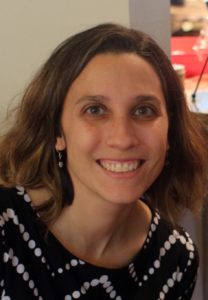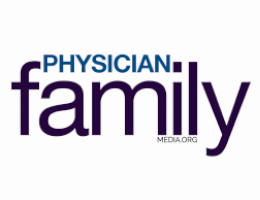Finding “Normal”
By Jordyn Paradis Hagar
I have wanted to write another article for this network for quite some time. Initially, there were bits of life that required a great deal of my attention, leaving little left for any other pursuits. More recently, though, I have found myself with the time, energy, and even brain space to write, but I have struggled with what I might say. I have no major complaints, no new insights, no profound ideas at the moment. Life has been pretty good lately.

And then I thought, “Why not write about that?” I don’t presume to think you want to hear about how good I feel right now, but I do wonder if there could be reassurance in hearing someone talk about normalcy during what can often feel like a less than normal journey through medicine.
We often find ourselves stuck in the unhappy parts of medicine: the hours, the call schedules, the lack of predictability and availability, etc. But what about the part where we get to just live and enjoy our lives for what they are?
It’s become easier lately. Maybe that’s because our family has hit some bumps, and coming out the other side provides perspective. But maybe it’s also simply that we’ve been doing this for a while. We have routines and roles, contingency plans and methods of communicating, and they work within the reality of our life. They are no longer new; they have been initiated, tested, and proven. They work, we are used to them, and they happen naturally and without much thought at this point.
We don’t magically have more time, but we know how to make the most of the time we do have. Instead of lamenting an amount of time, we strategize and prioritize our use of it. This means that when we are together, we are in the moment and really living our time together, however it makes sense to at that point. The result? We actually end up feeling like we talk to each other, see each other, and enjoy each other, even though this does not happen for a large portion of each day.
The predictability of medicine has also not spontaneously improved. However, the further we move along the medicine path, the more we learn which parts are truly unpredictable and which are predictable within a range. We then work to schedule within and around these ranges. We also build predictability into other areas of our life; our daily routines all promote stability and certainty that keep our daily life running smoothly, regardless of who is home and what time they get there. This way, when medicine becomes unhelpfully unpredictable, parts of our life remain undisrupted. And on those occasions when it becomes unpredictable in a more positive direction, we get excited and take advantage!
The details of medicine are the details of medicine. They are really no different now than they have ever been at any point along the way. However, we now take better advantage of the uniqueness of our situation. We have deepened our connections with the people we have met. We are finding our strengths and preferences as parents. I have eliminated some previously stressful parts of my life, and my husband’s confidence has developed with the passing of intern year. Individually we each feel good. This in turn helps us to remember our respect for one another and the significance of our roles within our family.
In essence, life feels normal.
So the other day I was talking to a friend. We both have one year old children, and we both work, though she works full time and I work part time. I mentioned to her that, preferences for working vs. staying at home aside, I was in awe that she could logistically balance a full time job with the rest of her life. She looked me square in the eye and said, “Jordyn, you need to take into account the responsibilities that you and I each have in a given week. You cannot compare the hours we each spend at our jobs without also considering everything else. Your husband works 80 hours a week. You run your entire household and family. That counts in your weekly total.”
I thought about that for a minute. Life has felt so good and so normal lately that I had honestly almost forgotten.
And THAT is refreshing.

(This blog was originally written about a year ago.)
Jordyn Paradis Hagar is a licensed clinical social worker doing therapy with children and families. She is also the proud mother to two daughters. She published her first book, “At Least You’ll Be Married To A Doctor,” in February 2012.
